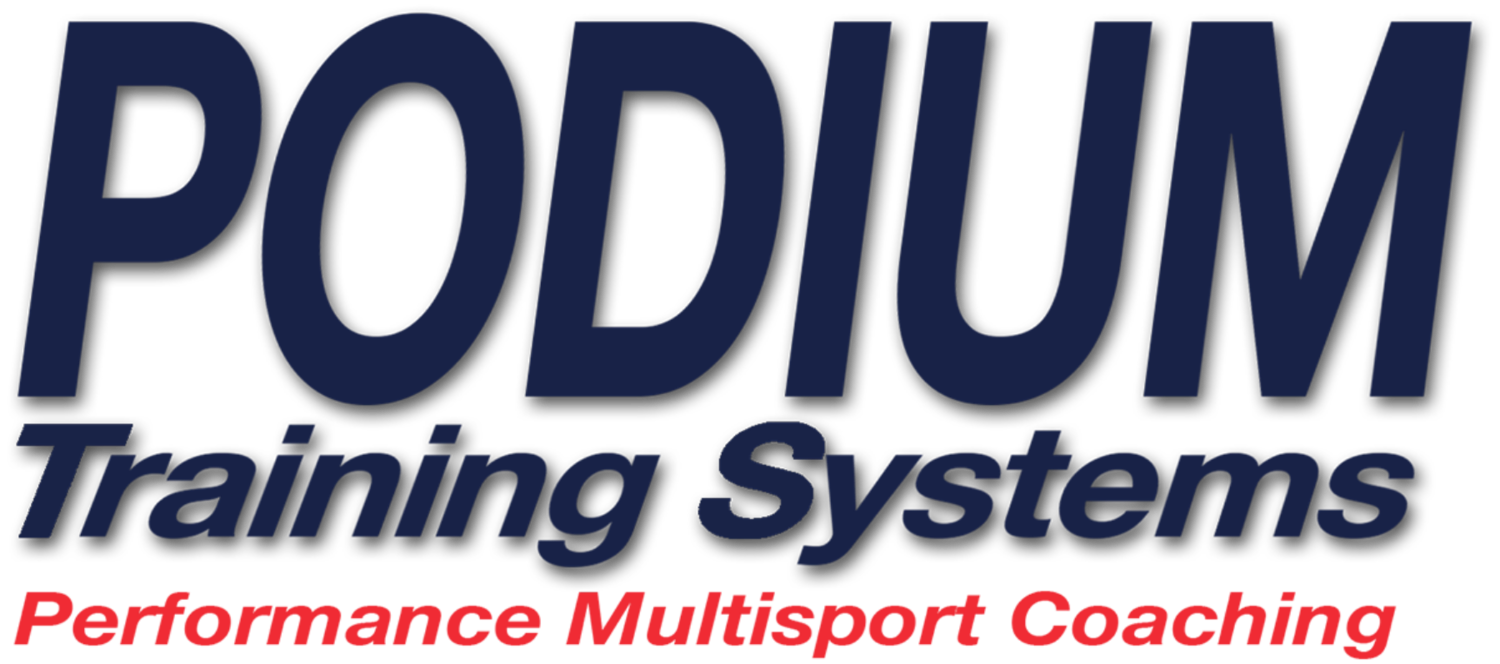I just wrapped up a pre-season triathlon camp this past weekend. I partnered with another triathlon coach here in Colorado Springs, and we had a great weekend with the athletes in attendance. Multiple swim sessions at the Olympic Training Center, bike handling and skills, run mechanics, great presentations on swim mechanics, periodization, training & recovery. A busy, full weekend.
As I began my own recovery from the weekend, I started to prep for the week ahead. As I looked at my calendar I was reminded that I have a high school swim team meeting later in the week. It struck me, then, that I've actually achieved the goal that JL (my wife) and I set out to accomplish a few years back.
As some of you know, I've been a professional coach for a number of years. But back in 2012, I put corporate America behind me and, along with JL, we changed our careers to follow our passions and run our own businesses. I started Podium Training Systems in 2011, and after a couple years of scrambling, here I am. Yes, I had been coaching prior to that, but 2011-2012 was when I decided that coaching was going to be my full-time career.
Back to my thoughts that struck me today. I still can't believe that this is what I now do for a living:
- Founder of Podium Training Systems
- Coach and founder of Podium Swimming
- Head coach to 14 individual triathletes (including one Xterra AG World Champ).
- Head coach of the Discovery Canyon High School boys swim team (who thought I'd ever be coaching H.S. sports!?)
- Head coach of the DCC Cross Country Team
- Assistant summer / long course coach for CSST Aquatics (a local, high performance, swim club)
- Coach instructor and educator for US Masters Swimming
- Education webinar presenter for USA Triathlon
It's a little hectic at times. Travel schedules to teach at coaching clinics sometimes mean I leave Friday night, get home Sunday night, and am up first thing on Monday morning. The high school swim season is a frenetic, time-consuming three months. I'm fried come the end of May, but I love every minute of it.
Sure, I live and die by spreadsheets and the tracking of income streams. I'm buying health insurance, (that used to just come with the job automatically) as well as liability insurance. I've learned quite a bit as I went along. And I'm still learning every day - how to do things more efficiently, and effectively. When you work for yourself, every minute counts.
It's surprising, and funny, how I initially thought I'd have all this extra time to train, and have spare time that I didn't have before. That couldn't be farther from the truth. I train much less than I used to, as all my time is focused on my athletes, and building training plans, planning the next triathlon camp, or scheduling time to be away for a few days to present at a swim coaching and stroke clinic. I haven't raced nearly as much as I used to, but again - I'm focused on other things......
I'm 100% dedicated to my athletes now. My focus is on their performance and results. It's a good place to be as a coach. And this is an amazing place to be in regards to my career. Doing what you love as a full-time job. Forget retiring when I'm 65. I can do this for a while.
Most importantly, I couldn't have done it without JL. Her support during this process has been amazing. There were some rough patches during the beginning, when I really didn't know how things were going to work out. We worked together, figured things out, and stuck to our plan of pursuing our dream jobs.
Follow your passion. Do what you love. Success will come.


